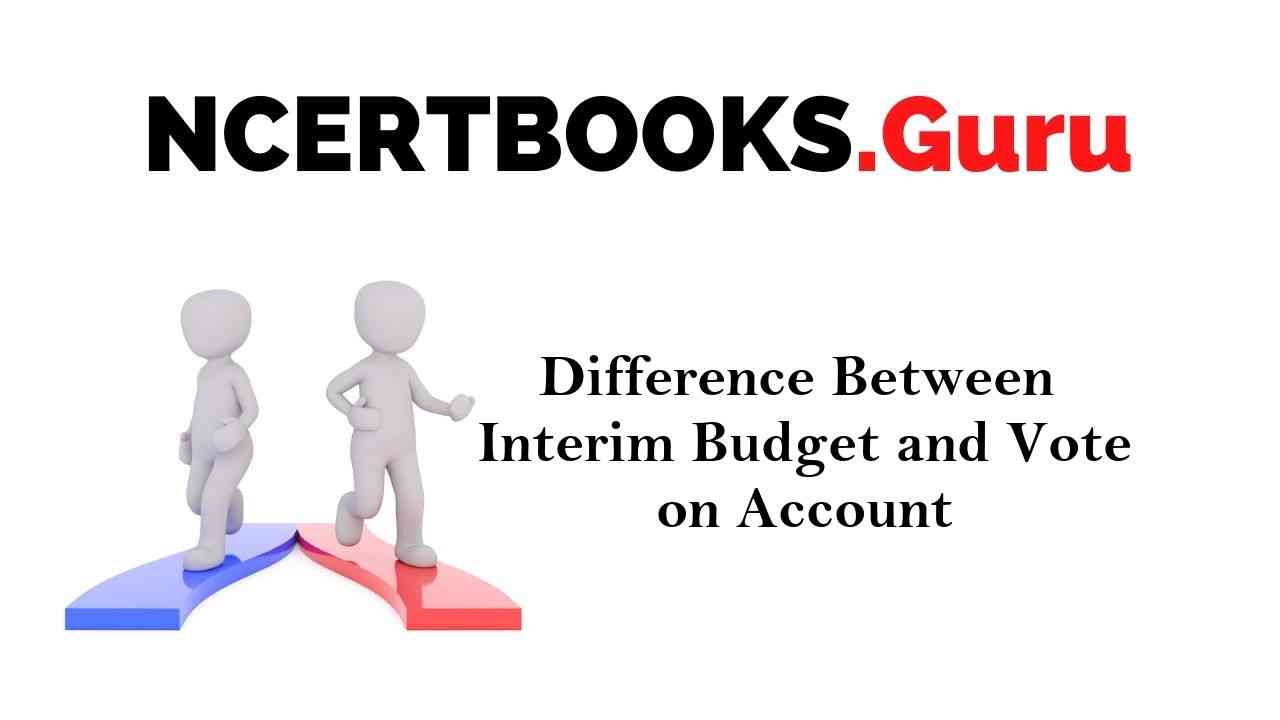The Government of Parliament proposes an Interim Budget if the opportunity is not available to request a full budget or if elections are held in the immediate vicinity. When the polls are close, the new Government can frame the total budget only correctly.
The temporary authorization of the Parliament for the Government to spend money is Vote on account. Vote on account is also just an interim allowance for an entire year’s spending and is an elaborate accounting statement including expenditure and revenues with tax and government policy adjustments.
You can also find differences between articles on various topics that you need to know. Just tap on the quick link available and get to know the basic differences between them.
What is the Difference Between Interim Budget and Vote on Account
| Subject | Interim Budget | Vote on Account |
| Receipts and Expenses | The interim budget includes all receipts and expenses. | In contrast, the Vote on Account includes only the spending and the expenditure of the Government. |
| Parliament Approval | It takes longer than expected to propose and approve the budget. | Vote on account is a grant in advance that requires the Government to afford to spend before the full budget, grant order, bill of borrowing, and loan bills are adopted. |
| Change in Direct Tax | The Constitution provides the Government with the right to adjust the Interim budget’s tax structure. | However, Direct taxes cannot be modified by the vote on account since any adjustment to direct taxes can only be made through the finance bill. |
| The period | “Interim budget” is operated by a caretaker government. | A regular government uses a “vote-on-account”. |
| Compulsion | The Government may introduce a full budget (if it so wishes) to obtain the bills for appropriations and obtain the funds. | Government to present voting on the account, the imposition of policies that may or may not be suitable for the incoming Government to follow in the same year is not reasonable. |
| Flexibility | The Interim Budget cannot be passed so quickly, and it has its own set of procedures, and compliances need to be followed. | Vote on Account may be passed on days where the Government wants some resources to keep the administration going until budgets have been given. |
Receipts and Expenses
The first difference between the Interim Budget and Vote on Account is that the Interim budget includes all receipts and expenses. In contrast, the Vote on Account includes only the spending and the expenditure of the Government.
In other words, The Vote on Account is just for the government budget’s spending hand while the Interim Budget for a transitional period in one form is a total budget. Still, the Government makes it until the polls in the last year of its tenure, and thus Expenditure and receipts both are included in it.
Parliament Approval
Before drawing and expenditure of money, the Government (executive) needs consent from Parliament. It takes longer than expected to propose and approve the budget. Since Parliament cannot vote on the whole budget until the start of the new financial year, the Government wants funds to keep it regular. Vote on account is a grant in advance that requires the Government to afford to spend before the full budget, grant order, bill of borrowing, and loan bills are adopted.
Change in Direct Tax
The Constitution provides the Government with the right to adjust the Interim budget’s tax structure. However, Direct taxes cannot be modified by the vote on account since any adjustment to direct taxes can only be made through the finance bill.
The Period
The Interim Budget is valid for a whole year while a Vote on Account is valid only for two to three months. A regular government uses a “vote-on-account” while an “Interim budget” is operated by a caretaker government.
Compulsion
In an election year, the Government is not required to send a vote on account. Although the convention proposes an intermediate budget to acquire the funds needed to invest on the voting account road, the Government may also introduce a full budget (if it so wishes) to obtain the bills for appropriations and obtain the funds.
However, during an election year, the ruling Government typically opts instead of a full budget for a vote-on-account or a provisional budget. While it is not legally compulsory for the Government to present voting on the account, the imposition of policies that may or may not be suitable for the incoming Government to follow in the same year is not reasonable.
Flexibility
Vote on Account may be passed on days where the Government wants some resources to keep the administration going until budgets have been given. In contrast, the Interim Budget cannot be passed so quickly, and it has its own set of procedures, and compliances need to be followed.
